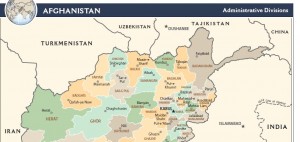TBIJ has a troubling report (see also this Independent story) on a number of British citizens who have been stripped of their citizenship so they can be targeted by drones or rendered here to the US. I described the fate of one of them — Mahdi Hashi — here. Another was the Russian spy Anna Chapman, though that happened after her arrest here.
I’m particularly interested, however, in this entry in TBIJ’s report.
B2
Deprived December 2011. Successfully challenged. Government now appealing.
This is one of three known cases where notice has been served on an individual while they were still in the UK. B2 came to the UK as a child with his refugee Vietnamese parents. He became a UK citizen in 1995, and later converted to Islam. In 2010 he reportedly traveled to Yemen, where MI5 alleges he trained with al Qaeda in the Arabian Peninsula (AQAP). He apparently returned to the UK in July 2011 and the Home Secretary informed him he would lose his British citizenship that December. B2 appealed, saying the decision would make him stateless. The Vietnamese government agreed that he was not its citizen, and the order was overturned. However the Home Office told the Bureau it is appealing. B2 is thought still to be in the UK.
These details make B2 sound like Minh Quang Pham, whom I wrote about here and here. Though here’s the timeline DOJ offered when they conspicuously announced Pham’s arrest last May, with a few additional details from Pham’s docket included.
December 2010: Pham travels from the UK to Yemen.
March 2011: Pham’s military training in Yemen begins.
March and April 2011: Pham carries a Kalashnikov.
April 2011: Pham works with Samir Khan and meets Anwar al-Awlaki.
July 2011: End date for military training in Yemen.
September 27, 2011: AQAP releases Inspire, Issue 7.
September 30, 2011: Khan and Awlaki killed in drone strike.
December 2011: End date of material support charges.
May 24, 2012: Pham indicted in NY.
June 29, 2012: Pham “arrested,” while still being held by British authorities in immigration custody. Indictment publicly released by DOJ.
August 23, 2012: Pham’s indictment officially unsealed.
Compare that to these dates regarding the UK’s efforts to strip B2’s citizenship.
February 9, 1983: B2 born in Vietnam.
August 1989: B2 travels with parents to UK, where they are granted asylum.
1995: B2 and his family get British citizenship.
December 2010: B2 travels to Yemen.
July 25, 2011: B2 leaves Yemen.
December 20, 2011: British Secretary of State decides to strip B2 of his citizenship.
December 22, 2011: British SoS provides notice and strips B2 of citizenship.
January 13, 2012: B2 appeals decision based on claim he would be stateless if he lost British citizenship.
June 13-14, 2012: B2’s citizenship hearing.
June 29, 2012: B2’s appeal succeeds.
Much of this lines up perfectly: The December 2010 departure for Yemen, the July 2011 end to military training, and the December 2011 immigration detention.
More important still, note that the British court released its decision about B2 on the same day — June 29, 2012 — that DOJ hastily announced Pham’s arrest, though without formally unsealing his indictment (note, DOJ’s original press release, though not FBI’s version, got disappeared, though can still be accessed via Internet Archive; see also this screen cap showing the press release missing).
The only discrepancy — and it may not be one — is B2’s claim he left Yemen on July 25, 2011. While DOJ’s military training charges end in July 2011, its material support charges continue until December 2011. Though note this Telegraph article says Pham was arrested when he arrived in Heathrow on July 27, 2011.
In short, unless there are a whole lot more Vietnamese refugees to Britain wandering back and forth from Yemen on the very same days, B2 is Pham.
Not only that, but it’s clear his “arrest” appears to be nothing more than an attempt to establish a fall-back position if and when holding him in immigration detention becomes impossible because he gets his citizenship restored. Barring that, they may well leave Pham in immigration custody in the UK indefinitely.
The most curious aspect of all this, though, is that material support charge that continues while, at least according to the Telegraph, Pham was in custody. Maybe the Telegraph is wrong, but if not, it means — according to the US — Pham continued to materially support AQAP while in British custody.

